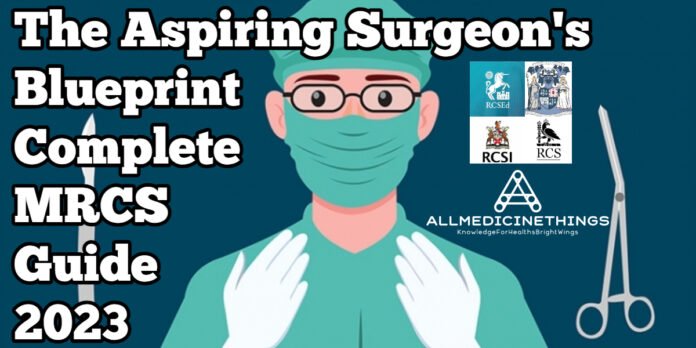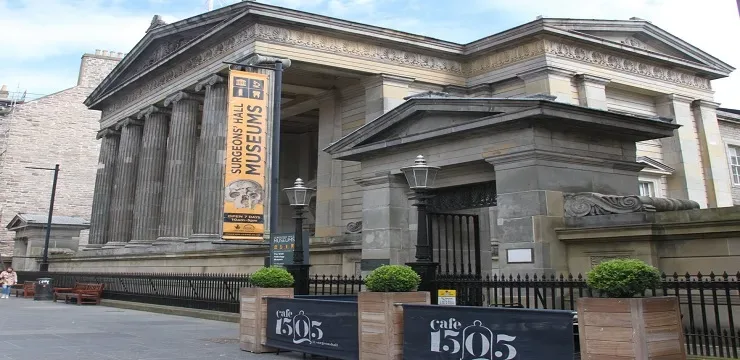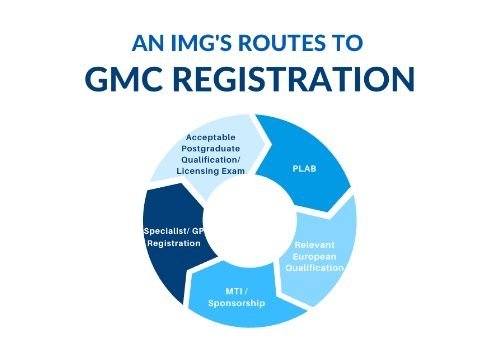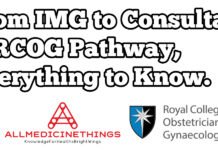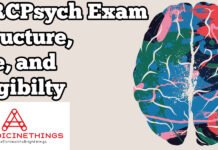Introduction
The Membership of the Royal Colleges of Surgeons, commonly known as MRCS, is a postgraduate qualification in the field of surgery. Administered by the Royal Colleges of Surgeons in the United Kingdom and Ireland, MRCS serves as a benchmark to assess the aptitude, knowledge, and clinical skills of surgeons in the making. The qualification provides a formal recognition of a candidate’s abilities, demonstrating their capability to proceed with higher surgical training.
Historical Background
The history of the Royal Colleges of Surgeons and the MRCS qualification can be traced back several centuries. The oldest of these, the Royal College of Surgeons of Edinburgh, was founded in 1505. Over time, the other Royal Colleges were established, each contributing to surgical education and standards. The MRCS exam itself has evolved significantly over the years. Initially, it was an apprentice-based model, but with advancements in medical science and surgical techniques, the MRCS evolved into a comprehensive examination that covers a broad range of surgical knowledge. It has transitioned from being a final, qualifying exam to an intermediary exam that serves as a stepping stone for higher surgical training.
Royal College of Surgeons of England
Importance and Relevance in Modern Surgery
In a world where medical knowledge is rapidly advancing, and surgical techniques are becoming ever more complex, the MRCS serves as a vital filter to ensure that only qualified and competent individuals advance in the surgical profession. The MRCS qualification is internationally recognized and respected, providing a pathway not just for advanced surgical training but also for academic and clinical research. Moreover, it ensures that a baseline level of quality and competency is maintained across the surgical profession, something that is crucial for patient safety and effective healthcare delivery.
Given the global health challenges, from the rise of chronic diseases to the demand for specialized surgical care, the role of skilled surgeons is more critical than ever. The MRCS provides a standardized assessment and qualification route, which helps in maintaining a high quality of healthcare service both domestically and internationally. It also serves as a foundation for surgeons to specialize in various domains like orthopedics, cardiothoracic surgery, and neurosurgery, among others.
In summary, the MRCS stands as an indispensable qualification in the contemporary surgical landscape, affirming the knowledge and skills of aspiring surgeons and paving the way for higher training and specialization.
Objective and Scope of MRCS
After understanding what MRCS is, its historical context, and its significance in today’s medical landscape, the next important aspect to delve into is the objective and scope of this esteemed qualification.
Ensures Competency in Common Surgical Procedures
The primary objective of MRCS is to ascertain that the candidate possesses a sound understanding of the basic surgical skills and principles. It aims to validate that a candidate is competent to carry out common surgical procedures under supervision. In essence, MRCS aims to be the assurance of surgical quality, as judged by established professionals in the field.
Ascertains Basic and Clinical Sciences Related to Surgical Practice
The MRCS examination covers a broad spectrum of topics, emphasizing both the basic and clinical sciences relevant to surgical practice. Subjects like anatomy, physiology, pathology, and microbiology are extensively covered. The exam rigorously tests the candidate’s understanding of these sciences, ensuring they have the foundational knowledge essential for a career in surgery.
Endorses a Candidate’s Eligibility for Further Surgical Training
Passing the MRCS examination serves as a milestone in a surgeon’s career. It not only endows them with Membership to the Royal Colleges but also acts as a stepping stone for further training in specialized surgical fields. From this point, candidates can go on to pursue core surgical training and eventually, higher surgical training. The MRCS thus serves as a vetting process, filtering those who are most suitable for progressing in this demanding and highly specialized medical field.
In Summary
The MRCS qualification has a multi-fold objective:
- To test and affirm the candidate’s competency in general surgical procedures.
- To assess the candidate’s foundational knowledge in the basic and clinical sciences related to surgery.
- To endorse a candidate’s aptitude and eligibility for further specialized training in surgery.
The scope of MRCS is broad yet meticulously focused, aiming to create a cadre of well-rounded, knowledgeable, and skilled surgeons capable of addressing the various challenges of modern surgical practice. With an internationally recognized curriculum and testing procedure, MRCS serves as a global standard for surgical competence.
Royal Surgical Colleges Involved
After exploring the objective and scope of MRCS, it’s crucial to know the authoritative bodies behind this prestigious qualification. MRCS is administered by several Royal Colleges, each of which plays a pivotal role in setting the standards for surgical practice in the United Kingdom and beyond.
Royal College of Surgeons of Edinburgh
History and Role
Founded in 1505, the Royal College of Surgeons of Edinburgh is the oldest surgical college in the world. It has been pivotal in shaping surgical practice and education globally. Today, the College contributes to the MRCS examination, ensuring it maintains its rigorous standards.
Contributions to MRCS
Edinburgh’s Royal College focuses on various aspects of surgery, from trauma to elective surgery, and ensures that the MRCS examination is comprehensive and up-to-date with current surgical practices.
Royal College of Surgeons of England
History and Role
Established in 1800, the Royal College of Surgeons of England has a long history of promoting the highest standards in surgical practice and education. Based in London, it is one of the leading surgical institutions globally.
Contributions to MRCS
The Royal College of Surgeons of England contributes extensively to the development of the MRCS curriculum and exam questions. It also offers training courses and educational resources aimed at MRCS aspirants.
Royal College of Physicians and Surgeons of Glasgow
History and Role
Founded in 1599, the Royal College of Physicians and Surgeons of Glasgow has a distinguished history of medical education. It focuses on a multidisciplinary approach to healthcare and offers training in various medical specialties, including surgery.
Contributions to MRCS
The College has a specific role in ensuring the MRCS covers aspects of general medicine and peri-operative care, thus providing a holistic approach to surgical training.
Royal College of Surgeons in Ireland
History and Role
Established in 1784, the Royal College of Surgeons in Ireland, based in Dublin, has been a significant contributor to surgical training and practice, both in Ireland and internationally.
Contributions to MRCS
This College provides valuable input into the examination process, offering a perspective that harmonizes both the UK and Irish educational systems and healthcare requirements.
In Summary
The MRCS examination is a collaborative effort between these esteemed Royal Colleges, each contributing its unique perspective and expertise. This collective wisdom ensures that the MRCS remains an up-to-date, globally recognized qualification that maintains the highest standards in surgical education.
Eligibility Criteria
Navigating the pathways of surgical training can be intricate, but one of the first hurdles to clear is understanding the eligibility criteria for the MRCS examination. Knowing what is required can help aspiring surgeons plan their educational and professional journey effectively.
General Medical Council (GMC) Eligibility Guidelines
Medical Degree
Requirement
A candidate must possess a medical degree from a recognized institution. This serves as the basic academic qualification required to sit for the MRCS examination.
Verification
The degree is typically verified by the respective Royal College during the application process. Some colleges might require additional documentation or verification from the issuing institution.
Minimum Period of Surgical Training
Requirement
Applicants should have completed a basic surgical training period, often comprising two years, known as the Foundation Years in the UK. The period of training may vary depending on the country and the specific surgical program.
Verification
Proof of completion of the requisite surgical training, usually in the form of a certificate or a letter from the program director, is mandatory during the application process.
Registration with Medical Council
Requirement
Candidates must be registered with the General Medical Council in the UK or its equivalent in other countries. This registration is proof of the candidate’s licensure to practice medicine.
Verification
The registration status is usually confirmed directly with the General Medical Council or its equivalent during the application process.
Additional Requirements
Language Proficiency
For non-native English speakers, proof of English language proficiency, such as an IELTS or TOEFL score, might be required.
Fitness to Practice
Some colleges may require a “Fitness to Practice” declaration, confirming that the candidate is ethically and professionally fit to practice medicine.
Professional Indemnity
Proof of professional indemnity or malpractice insurance may also be a requirement, depending on the jurisdiction.
In Summary
Meeting the eligibility criteria is the first step toward attaining the MRCS qualification. The requirements are designed to ensure that only qualified, competent individuals who have undergone the necessary foundational training can sit for this advanced surgical examination.
MRCS Exam Structure
One of the most crucial aspects for any aspiring surgeon considering the MRCS pathway is to understand the exam’s structure. Knowing what to expect can alleviate anxiety and help you tailor your preparation strategy more effectively.
Part A: Applied Basic Science
Topics Covered
Anatomy
This section tests a candidate’s understanding of human anatomy, as it relates to surgical procedures and conditions.
Physiology
Here, candidates are assessed on their grasp of human physiology, particularly concerning responses to surgery and anesthesia.
Pathology
This part delves into the understanding of disease mechanisms, tissue responses, and other pathological factors relevant to surgery.
Microbiology
Candidates are tested on their knowledge of bacteria, viruses, and other microorganisms that they may encounter in surgical practice.
Types of Questions
- Multiple-Choice Questions (MCQs) Part A is typically a written exam consisting of multiple-choice questions, aimed to assess the breadth of a candidate’s knowledge across these topics.
Part B: Objective Structured Clinical Examination (OSCE)
Topics Covered
Clinical Skills
This section tests hands-on skills like suturing, knot-tying, and patient examination.
Communication Skills
Candidates are assessed on their ability to communicate effectively with patients, families, and other healthcare providers.
Ethical Dilemmas
Real-world scenarios involving ethics and decision-making are used to evaluate a candidate’s judgement and professionalism.
Types of Questions
- Stations and Scenarios Part B usually comprises various stations where candidates rotate through different clinical scenarios and tasks.
Scoring and Timing
- Part A usually lasts for about 4 hours and consists of 180 MCQs.
- Part B is generally a half-day exam, with the number of stations varying based on the college administering the exam.
In Summary
Understanding the structure of the MRCS exam is indispensable for effective preparation. Part A focuses on applied basic science with a multiple-choice format, while Part B uses an OSCE to assess practical clinical skills and judgement. Both sections are designed to rigorously test a candidate’s readiness for advanced surgical training.
Preparing for MRCS: Resources, Tips, and Strategies
Having a comprehensive understanding of the MRCS exam structure is half the battle; the other half is effective preparation. The rigors of the MRCS exam demand a strategic approach and access to the right resources.
Essential Study Resources
Textbooks
- “Basic Surgical Techniques” by R.M. Kirk
- A quintessential read for understanding fundamental surgical procedures.
- “Essential Surgery: Problems, Diagnosis and Management” by Clive R. G. Quick
- Offers an in-depth look at common surgical conditions and treatments.
- “Gray’s Anatomy for Students”
- A comprehensive guide to human anatomy, tailored for medical students and professionals.
Journals
- The British Journal of Surgery
- Provides current research and techniques in the field of surgery.
- The Annals of The Royal College of Surgeons of England
- A peer-reviewed journal that provides clinical reviews and original research.
Online Platforms
- MRCS Revision Websites
- Various platforms offer question banks, mock exams, and study guides tailored for MRCS preparation.
- YouTube
- Numerous surgical demonstrations and lectures can be accessed freely.
Study Strategies
Create a Study Plan
- Time Management
- Allocate specific time slots daily or weekly for focused study.
- Topic Prioritization
- Identify your weak areas and allocate more time to them.
Practice Regularly
- Mock Exams
- Take practice exams to familiarize yourself with the exam pattern and identify areas for improvement.
- OSCE Simulations
- Practice clinical scenarios with peers to hone your practical skills.
Review and Revise
- Active Recall
- Use techniques like flashcards or spaced repetition to improve retention.
- Error Analysis
- Review incorrect answers to understand the underlying mistakes.
Tips for Exam Day
- Arrive Early
- Give yourself ample time to acclimate to the exam environment.
- Stay Calm
- Keep stress in check; remember, you’ve prepared well.
- Manage Time Wisely
- Keep an eye on the clock, especially during the MCQ section where time can be a constraint.
In Summary
MRCS is a challenging but achievable milestone in your surgical career. Proper planning, effective study strategies, and the right resources can set you on the path to success.
Career Opportunities and Professional Development Post-MRCS
Once you’ve successfully completed the MRCS examination, a multitude of pathways and opportunities open up. The MRCS is not just a qualification but a gateway to an expansive surgical career. Let’s explore what lies ahead.
Core Surgical Training
Definition
Post-MRCS, the immediate next step for most surgeons is Core Surgical Training (CST). This is a two-year program that provides exposure to various surgical specialties, equipping you with the foundational surgical skills required for advanced training.
Opportunities
CST allows you to rotate through different surgical specialties, thereby offering a chance to explore various fields and determine your area of interest.
Higher Surgical Training
Definition
Following CST, you enter a stage known as Higher Surgical Training (HST). This is a more specialized phase that lasts around 6 years, leading to the Certificate of Completion of Training (CCT).
Specialties
You can pursue advanced training in various surgical specialties such as:
- General Surgery
- Orthopedics
- Cardiothoracic Surgery
- Neurosurgery
- Plastic Surgery
- Pediatric Surgery
- Urology
Fellowships and Research
Many surgeons opt for fellowships in specialized surgical fields, either in their home country or internationally. Research opportunities are also abundant and can add a different dimension to your career.
Benefits
- Enhanced skill set
- Networking opportunities
- Academic recognition
International Opportunities
The MRCS is a globally recognized qualification. This allows you to explore surgical positions outside your home country, including humanitarian roles or working in healthcare systems that are different from your own.
Requirements
Different countries have various credentialing systems, so additional examinations or qualifications may be required.
Consultancy and Private Practice
After years of training and clinical experience, many surgeons venture into consultancy roles or establish their own private practices.
Considerations
- Investment requirements
- Malpractice insurance
- Business skills
Teaching and Academia
With years of experience, you can transition into educational roles, training the next generation of surgeons.
Roles
- Lecturer
- Clinical educator
- Research mentor
In Summary
The MRCS is not the end but rather the beginning of an enriching and diverse surgical career. Whether you choose to specialize, teach, conduct research, or even venture internationally, the possibilities are both broad and rewarding.
Conclusion and Key Takeaways
The journey towards becoming a proficient surgeon is challenging but fulfilling, and the Membership of the Royal Colleges of Surgeons (MRCS) serves as a pivotal milestone in this path. As we wrap up this extensive guide on MRCS, let’s recap some of the critical aspects we’ve explored.
Key Takeaways
Importance of MRCS
- The MRCS is a globally recognized qualification that sets the standard for surgical expertise and competence. It serves as a testament to your foundational knowledge and clinical skills in surgery.
The Royal Colleges
- Various Royal Colleges, each with its own illustrious history and contributions to surgical science, collaboratively design and administer the MRCS examination. Their collective expertise ensures the exam’s comprehensiveness and relevance.
Eligibility Criteria
- Understanding the eligibility criteria, from medical degrees to surgical training requirements, is crucial. This information allows you to properly plan and prepare for the MRCS examination.
Exam Structure
- The MRCS exam consists of two main parts: Part A, focusing on applied basic sciences, and Part B, an Objective Structured Clinical Examination (OSCE). Familiarity with the format aids effective preparation.
Preparation Strategies
- Employing a well-structured study plan, making use of reliable resources, and consistently practicing can significantly boost your chances of passing the MRCS examination.
Career Opportunities
- After MRCS, the avenues for career growth are numerous, ranging from specialized training to academic roles, research opportunities, and even international practice.
Final Thoughts
The MRCS is a milestone that brings with it not only prestige but also a sense of accomplishment and readiness to advance in the surgical field. Whether you are at the beginning of your surgical career or looking to elevate your existing practice, the MRCS serves as a robust foundation upon which to build a fulfilling, impactful career.
Thank you for staying with us through this comprehensive guide on MRCS. We hope it serves as a valuable resource for your journey in the fascinating and essential world of surgery.
This concludes our extensive guide on the MRCS pathway. With this information at your fingertips, you are better equipped to navigate the complexities and opportunities that come with pursuing a career in surgery. Best of luck in all your future endeavors!
If you have any questions you can comment down below or if you have anything to add too. Here are some links you may be interested in too.
Post-MBBS Opportunities Worldwide in 2023: The Ultimate Guide

